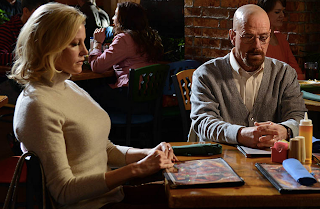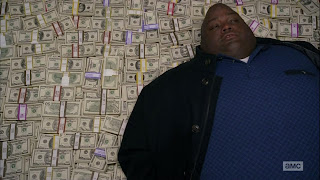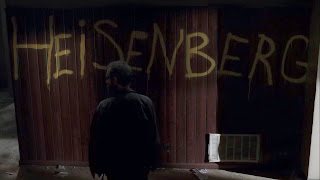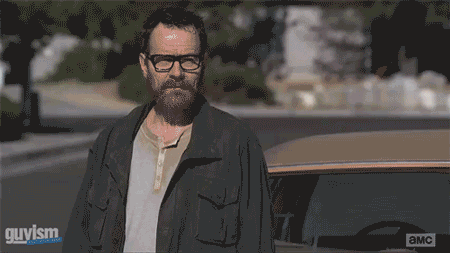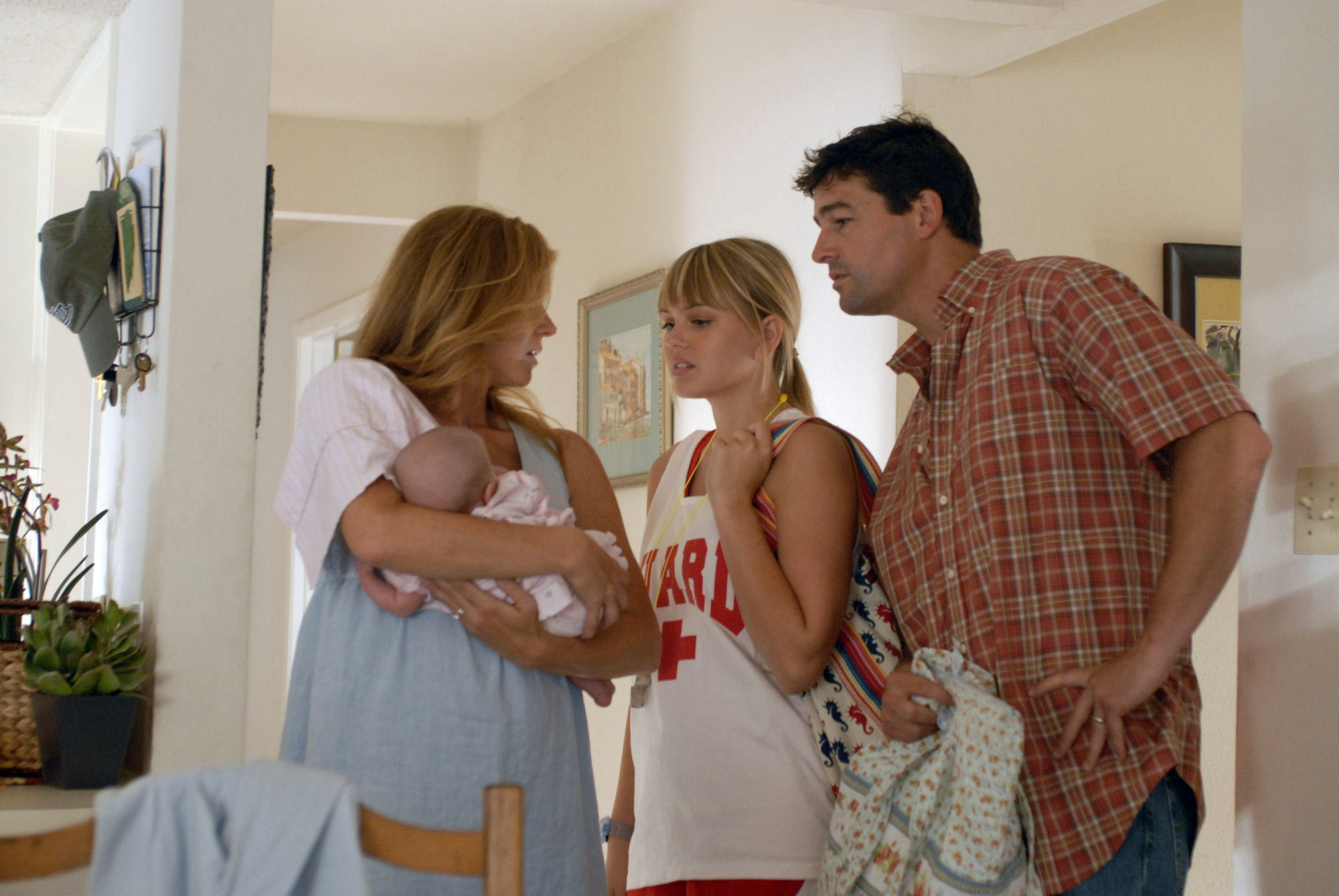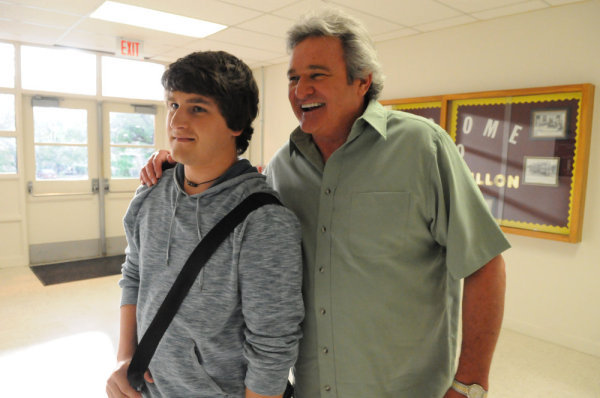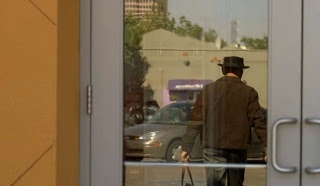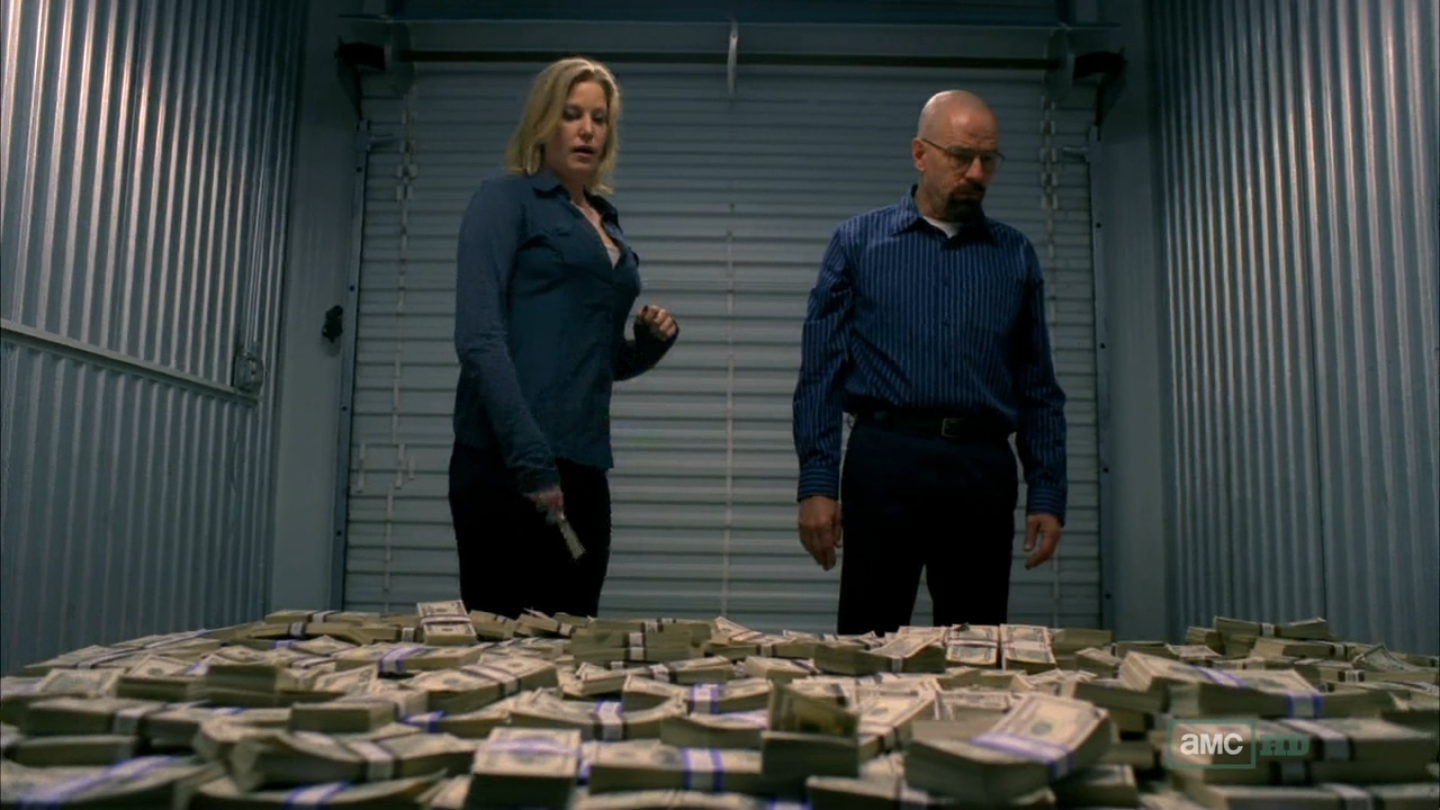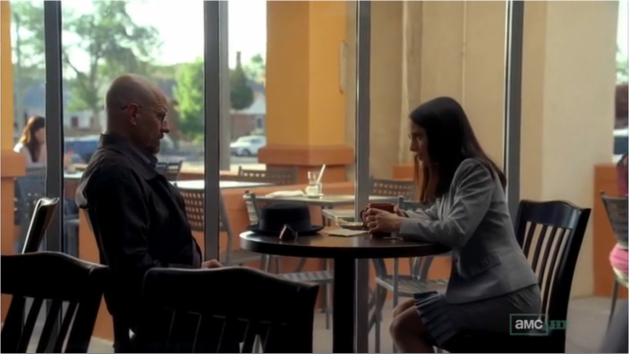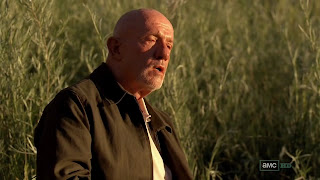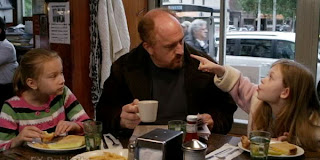This is a recap of episode 11 of season 5 of “Breaking Bad.” The episode is “Confessions.”
Not that I will actually do this, but from now on I am going to stop trying to predict every little thing that will happen on “Breaking Bad.” That’s because nobody can mess with Vince Gilligan and the gang’s sheer brilliance and intricate plotting. I don’t know how this show will end, which is why I am not a writer for “Breaking Bad.”
“Confessions” opens with a scene that isn’t addressed for the rest of the episode, but it will definitely come back to haunt everyone. It is important to note that one of the men that Todd met with also orchestrated all those prison murders at the end of last season and now he knows Walter’s name. Also, that bloody tissue he wiped his boot with probably didn’t flush all the way, as this show follows Chekhov’s Gun very closely.
After the credits, it was back to where we left off last week. The two a-hole cops continued to taunt Jesse, in a slow motion sequence that kind of resembled the opening of “King of the Hill.” However, once Hank walks in, things gets serious. Jesse, who looks like he’s aged about 50 years in the past three episodes, is still no closer to giving Hank what he wants to hear. For now, he still seems too crushed to do anything. Suddenly Saul, who always acts like he’s saving the day, barges in and reads Jesse his rights. In the mean time, Hank is no closer to revealing the truth to the DEA. This displeases Marie, who’s mainly around this episode to tell Hank to confess to the DEA already. Meanwhile, Walt was working on a little confession of his own.

This was an episode filled with particularly long scenes, the best of course being the restaurant scene, in which Walt, Skyler, Hank, and Marie sit down for dinner and discuss what happens next. This scene displayed everything that makes “Breaking Bad” great: uncomfortable humor, underlying tension, and breathless suspense. The scene was funny as the waiter, who was basically the annoying Chotchkie’s waiter from “Office Space,” kept offering to make them guacamole while Hank gave Walt the death stare, all to a mariachi tinged soundtrack. All of their concerns are the same yet their goals are very different. Walt slides Hank and Marie his confession CD and walks away.
And here is yet another of the show’s great twists: Walt wasn’t actually confessing, he was instead framing Hank for crimes that he never committed. This has to be one of Walt’s most evil episodes. First, he manipulates Junior with his cancer, then he threatens to ruin Hank’s life. Mr. Heisenberg can be an evil bastard without putting his finger on the trigger. What gives Walter White most of his power is the fact that he is a brilliant man.
After watching the video, Hank finds himself in more and more of a bind. Marie reveals to him that Walt paid for his medical bills after the twins nearly left him dead. The standoff between Walt and Hank is becoming more of a stalemate by the minute. Hank would probably take some satisfaction in knowledge of the fact that Walt is also scrambling for a solution to his problems. Walt’s desperation leads him to call a meeting with Saul and Jesse in, you guessed it, the middle of the desert. While waiting, Jesse catches sight of a tarantula, perhaps the same one owned by the boy that Landry/Todd shot last season. Poor Jesse can never escape his past.
Walt is the biggest part of Jesse’s past that he can never get away from. He is like Jesse’s own personal cancer, as he frequently comes in and out of Jesse’s life and finds any way possible to ruin it. Walt tells Jesse that he should follow Saul’s plan from season three by calling the guy who can you a new identity. Jesse has more to look forward to in life than Walt does. However, Jesse isn’t having it, and decides to finally call Walt out for his selfishness. Walt looks insulted and says he would never do that and gives Jesse a big hug. Jesse immediately breaks down crying. The beauty of this scene and this character is that at this point, it could go one way or another. Walt has always been something of a father figure to Jesse, and the fact that he hasn’t offed him yet shows that he must care about the kid. However, this episode also showed Walt lie to and emotionally manipulate his real son. It’s nearly impossible to tell now whether or not anyone is safe from Walter White. Heisenberg isn’t dead: he just comes out whenever he feels like it.

So Jesse goes along with the plan. He tells Saul he wants to move to Alaska. I have no idea why. Maybe he would move there and assume the identity of Dr. Joel Fleischman.* Or maybe he would meet up with Francis from that season of “Malcolm in the Middle” when he runs away to Alaska.** Then, while Jesse waits for the van that will take him away to the freedom of a new life, he has a sudden Jimmy Neutron brain blast that his ricin cigarette, like the dope he was carrying, was snatched away by Huell, therefore realizing that Walt played a very instrumental part in nearly killing Brock. Sure, this came somewhat out of nowhere, but I’ll give it a pass because it was a means to a pretty excellent ending.
After punching Saul multiple times in the face, Jesse rushes over to Walt’s house, gasoline in hand, and starts pouring it all over his house. We never see the house actually go up in flames and given the show’s habitual misdirection, maybe Jesse never actually gets to burn it down. After all, the flash forwards show a house that is wrecked but not burned to the ground.
Last week, we got the cathartic scene of Marie slapping Skyler in the face. This week, we get the cathartic scene of Jesse finally snapping out of his funk and taking control of his life. But this was no mere act of vengeance; this was Jesse Pinkman finally freeing himself from Walter White. One horrible chunk of his past could really become just the bad dream that Walt described to him. Maybe Jesse won’t have to go to Belize after all.
*That whole joke theory that Walter goes off into witness protection and becomes Hal from “Malcolm in the Middle” is getting kind of stale, so why not throw in another fake theory involving another TV show?
**Okay, I know what I just said. But this would be hilarious.
Other “Breaking” Points
- This review contains a helpful timeline of the events of Jesse’s life since season four that makes his revelation plausible.
- Can anyone find any meaning in the colors on Saul’s tie. Come on people! Ties are the key to overanalysis!
- Speaking of Saul, his license plate says LWYRUP. Because of course.
- Can somebody please take a clip of Jesse crying and put this audio over it?
- The way that Marie tells Walt to go kill himself is chilling. Betsy Brandt has been on fire this season.
- “Jesus Christ Marie.”
- More wind sounds in this episode.
- One of the many documents seen on Hank’s desk: “Sexual Harassment in the Workplace.” I bet Gomie had some great jokes about this memo.
- Why does Saul even have a Hello Kitty phone?
- The gun in the soda machine was covered in ice. Little details like this are one of the many reasons this show is different from any show that’s ever been on TV.
- Wow, Vince Gilligan. I dunno. Having Walter turn away tableside guacamole makes him seem REALLY unlikable.” -Tweet from Patton Oswalt. So very true.
- Seriously, who turns away tableside guacamole?!
- That restaurant seemed like a Mexican version of T.G.I. Friday’s/Applebee’s/Chili’s to me. I would go to places like that more often if they actually offered tableside guacamole.
- Okay, now I can’t stop thinking about tableside guacamole.
- Saul has been involved with drugs, money laundering, and murder. You’d think he’d let smoking in his office go.
- “I’m so upset that Lydia wasn’t in this episode!” -Nobody
- There is a painting of “The Good, the Bad and the Ugly” in Hank’s house. This is one of my favorite movies of all time and I’m sure Vince Gilligan was also hugely influenced by it. I know I’m overanalyzing again, but I have a feeling that was put there for a reason. If we don’t get a standoff between three men in the final episode, maybe we’ll at least get some Ennio Morricone music.


